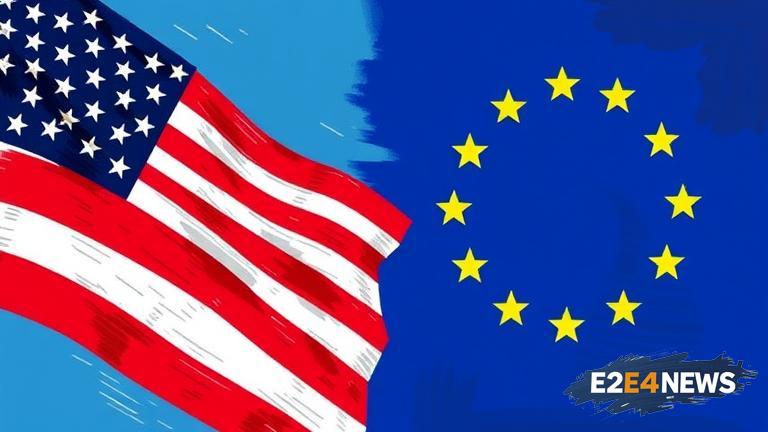The United States has announced a 30% tariff on various European goods, including wine, cheese, and olives, in response to a long-standing dispute over subsidies to the European aircraft manufacturer Airbus. This move has sparked concerns among European businesses and policymakers, who fear that the tariffs could have a significant impact on their exports to the US. The tariffs, which are set to take effect immediately, will affect a range of products, including food, beverages, and luxury goods. The US Trade Representative’s office has stated that the tariffs are necessary to counter the unfair subsidies provided to Airbus by European governments. However, European officials have argued that the tariffs are unjustified and will harm innocent businesses and consumers. The dispute between the US and the EU over Airbus subsidies has been ongoing for several years, with both sides accusing each other of providing unfair support to their respective aircraft manufacturers. The World Trade Organization (WTO) has ruled in favor of the US in the dispute, finding that the EU had provided illegal subsidies to Airbus. In response, the US has imposed tariffs on a range of European goods, including those from France, Germany, Spain, and the UK. The EU has threatened to retaliate with its own tariffs on US goods, which could escalate the trade tensions between the two economies. The impact of the tariffs is expected to be felt across various industries, including agriculture, manufacturing, and services. European farmers and producers are likely to be hit hard by the tariffs, as they rely heavily on exports to the US. The tariffs could also have a significant impact on US consumers, who may face higher prices for European goods. The trade tensions between the US and the EU have been rising in recent years, with both sides imposing tariffs on each other’s goods. The US has also imposed tariffs on EU steel and aluminum imports, citing national security concerns. The EU has responded with its own tariffs on US goods, including bourbon whiskey and Harley-Davidson motorcycles. The ongoing trade tensions between the US and the EU have raised concerns about the future of global trade and the potential for a trade war. The US and the EU have a long-standing trade relationship, with the EU being one of the US’s largest trading partners. However, the current trade tensions have created uncertainty and instability in the global economy. The US and the EU are expected to continue negotiations to resolve the dispute over Airbus subsidies and reduce trade tensions. The outcome of these negotiations will have significant implications for businesses, consumers, and the global economy as a whole. The trade relationship between the US and the EU is complex and multifaceted, with both sides relying on each other for trade and investment. The current trade tensions have highlighted the need for a stable and predictable trade environment, which is essential for businesses to thrive and create jobs. The US and the EU must work together to resolve their trade differences and promote a rules-based trade system that benefits both economies.
